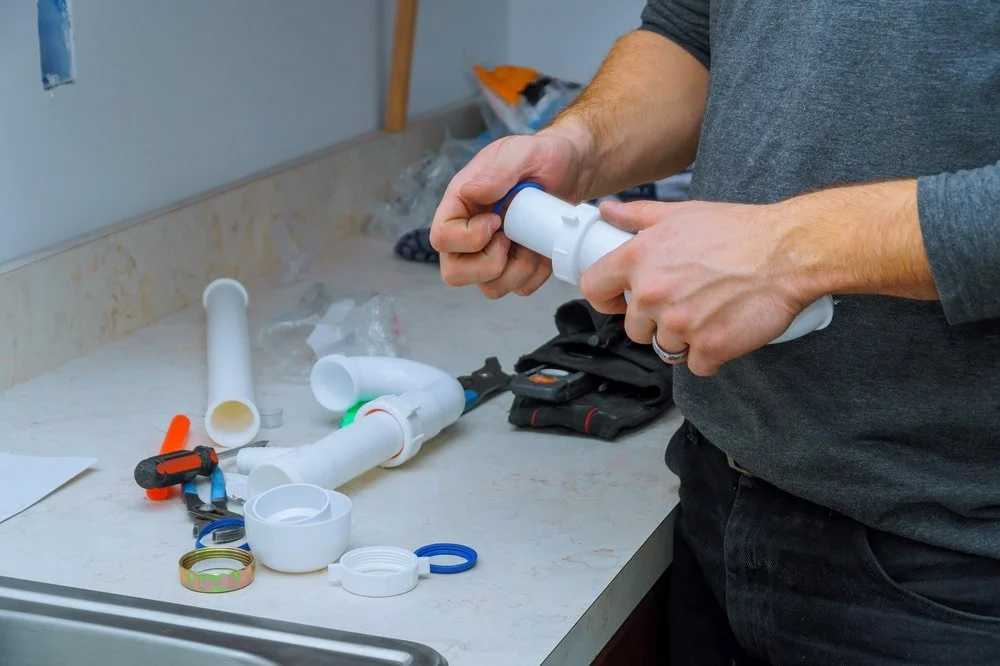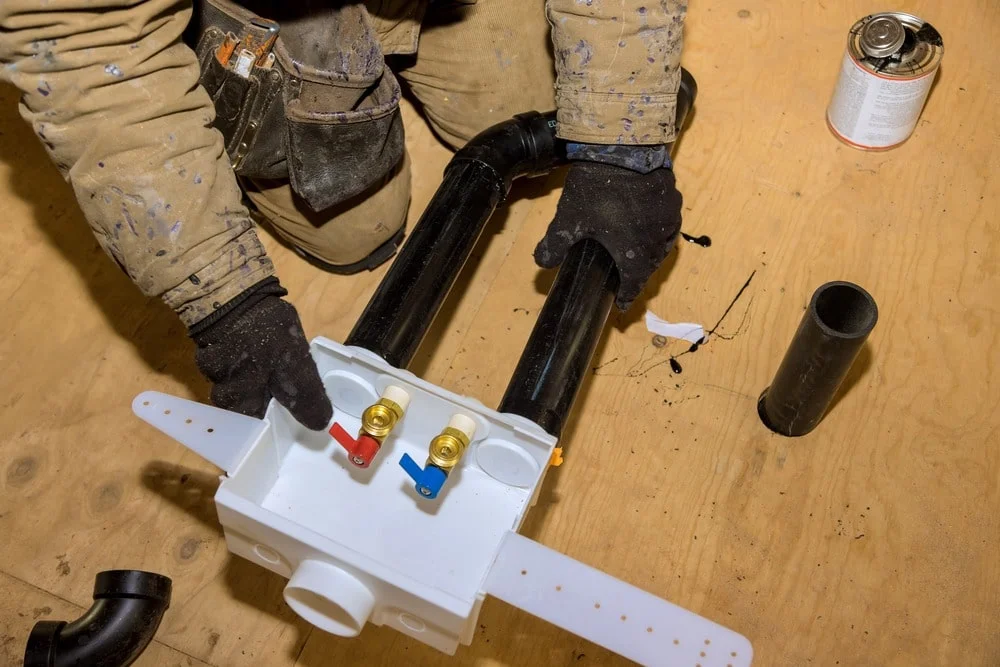Homeowner's Guide to DIY Plumbing Texas: What You Can and Can't Do

Plumbing issues are a part of homeownership. Whether it’s a leaking faucet or a clogged drain, many Texans prefer to roll up their sleeves and do simple plumbing repairs themselves. But, before you begin, you need to grasp what is legally permissible under DIY plumbing Texas regulations. Texas has rigorous restrictions, and making the wrong move might result in significant fines. This tutorial explains what you may and cannot do when it comes to plumbing in Texas.Many families, particularly in Texas, deal with hard water. The high mineral concentration of hard water can lead to a variety of difficulties, including blocked pipes and inefficient appliances. If you’re weary of limescale buildup in water heater, installing a water heater water softener combination can be a game changer. This solution not only increases the lifespan of your appliances but also improves water quality. But is this combo the best option for you? Let us delve in and find out.
Understanding DIY Plumbing and Laws in Texas
What Are Texas Plumbing Regulations?
Plumbing regulations in Texas are intended to safeguard public health and safety. The Texas plumbing code compliance guidelines guarantee that all plumbing work adheres to tight criteria. Homeowners may do some small repairs themselves, but anything involving big installations, underground pipelines, or gas lines usually requires a qualified expert.
When Do You Need a Licensed Plumber in Texas?
Plumbing tasks that pose a health risk, such as water supply line installations, gas pipes, or sewage system work, require the services of a licensed plumber in Texas. If a project threatens your home’s structural integrity or poses a danger of contamination, engaging an expert is not just a smart idea; it is also the law.
What Happens if You Violate Texas Plumbing Codes?
Plumbing tasks that pose a health risk, such as water supply line installations, gas pipes, or sewage system work, require the services of a licensed plumber in Texas. If a project threatens your home’s structural integrity or poses a danger of contamination, engaging an expert is not just a smart idea; it is also the law.
Ignoring Texas plumbing laws can result in more than simply flooded bathrooms. If an inspector discovers that unpermitted or inappropriate work was performed, you may incur fines, be ordered to repeat the work, or have difficulties while selling your house. Worse, defective plumbing can result in leaks, mildew, and even hazardous gas leaks.
From leaky faucets to clogged drains, master everyday plumbing fixes and preventative maintenance to keep your Texas home flowing smoothly before emergencies strike.
DIY Plumbing Texas Tasks Homeowners Can Legally Do
Not all plumbing problems need the assistance of a professional. As a homeowner in Texas, you can lawfully handle the following tasks:
Fixing Minor Leaks and Dripping Faucets
A leaky faucet is more than simply an annoyance; it wastes water and increases your cost. Fixing small leaks, changing washers, and tightening connections are all within your rights as a homeowner.
Unclogging Drains and Toilets
A plunger or drain snake may be quite useful for clearing a clogged toilet or slow-moving drain. Just stay away from aggressive chemical cleansers that might harm your pipes.
Replacing Showerheads and Faucets
Replacing an outdated showerhead or faucet is a simple procedure that does not require expert assistance. Simply make sure the new fittings are correctly placed to avoid leakage.
Installing or Replacing Garbage Disposals
Garbage disposals can be replaced without a permit as long as no new plumbing lines are installed. When working with electrical components, always remember to observe safety requirements.
Basic Water Heater Maintenance
While you may clean your water heater to eliminate sediment buildup, replacing it completely may need a Texas plumbing permit, depending on your local rules.
Plumbing Projects That Require a Licensed Plumber in Texas
Some jobs are better left to specialists. The following are the plumbing tasks that legally need a licensed plumber in Texas:
Gas Line Repairs and Installations
Because of the substantial safety dangers, Texas law requires gas line work to be done carefully. Gas installations and maintenance must be handled by a licensed specialist.
Sewer Line Repairs and Replacements
A clogged or broken sewage pipe is a serious problem. Because faulty work might lead to pollution, only a licensed plumber is permitted to do sewage line replacement.
Water Main and Underground Pipe Work
To guarantee safety and compliance, any plumbing work involving underground pipes or the main water supply must be carried out with a permit and by a certified plumber.
Installing or Moving Plumbing Fixtures
Professional assistance is typically required when relocating or installing new sinks, toilets, or showers since water supply and drainage lines must be adjusted.
Whole-Home Repipe or Major Pipe Rerouting
Replacing the whole plumbing system in a home is a significant undertaking. Texas law requires that substantial plumbing overhauls be performed by a licensed expert.

How to Apply for a Plumbing Permit in Texas?
When Does a Plumbing Project Require a Permit?
A Texas plumbing permit is required for significant projects like water heater installations, new construction plumbing, and any work that involves underground pipes or sewage hookups.
Where to Apply for a Texas Plumbing Permit?
Homeowners can obtain a plumbing permit from their local city or county’s building department. Each jurisdiction may have somewhat different criteria, so contact your local office.
Cost and Processing Time for Plumbing Permits in Texas
Texas plumbing permit prices and processing times vary based on project complexity. Some licenses can be secured in a few days. However, larger projects may need inspections and extended approval processes.
Common DIY Plumbing Mistakes and How to Avoid Them
Over-Tightening Fittings and Connections
Excessive force can fracture fittings and create leaks. Apply just enough pressure to form a tight seal.
Using the Wrong Type of Pipes or Materials
Mixing unsuitable pipes, such as copper and galvanized steel, can cause corrosion and damage over time.
Forgetting to Shut Off the Water Supply
To avoid flooding your property, always switch off the water before making any repairs.
Misusing Chemical Drain Cleaners
Harsh chemicals can corrode pipelines over time. Instead, use a drain snake or mix baking soda and vinegar. And all these tips are very effective flor day to day plumbing.
Safety Tips for DIY Plumbing in Texas
How to Prevent Water Damage During Repairs
Keep towels and buckets handy, and know where your main shut-off valve is located in case of an emergency.
Protecting Yourself from Plumbing Hazards
When working with equipment or chemicals, always wear gloves and safety eyewear.
When to Stop and Call a Professional Plumber
If a job gets overwhelming, it is preferable to hire an expert rather than risk causing further damage.
FAQs About DIY Plumbing in Texas
Can I legally install a new toilet in my Texas home?
Yes, as long as no plumbing lines need to be moved.
Do I need a permit to replace my water heater in Texas?
Yes, in most circumstances, permission is necessary.
What plumbing work can I do without a license in Texas?
Minor repairs include repairing leaks, changing fixtures, and unclogging drains.
How do I know if I need a professional plumber?
If the project includes gas, sewer lines, or other changes, use a professional.
Are there fines for unlicensed plumbing work in Texas?
Yes, unauthorized plumbing work can result in penalties and necessary corrections.
Need a Professional Plumber in Texas? Take Action Today!
While some plumbing operations are easy enough for homeowners, others need professional assistance. DIY plumbing in Texas will not always work. If you require a licensed plumber for significant repairs or installs, Dinomite Services has you covered. We assure Texas plumbing code compliance and provide excellent service, so you won’t have to worry about costly blunders.
Need experienced plumbing assistance? Contact us immediately! Dinomite Services is here to help with all of your plumbing problems in Texas.
